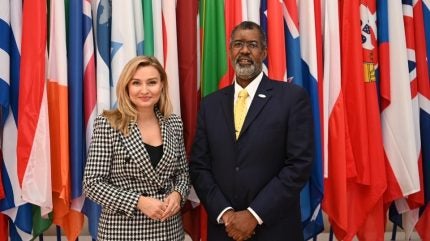
The NEA and the Swedish Government will collaborate on a cost study of the Swedish electricity and energy system.
The study will develop detailed scenarios of different policy choices in the nation’s energy sector and investigate their cost implications.
Country-specific analyses conducted by the NEA aim to help policymakers understand the likely cost implications of different strategic choices when designing future electricity and energy systems operating under stringent carbon constraints.
The NEA’s report on its system cost study of Sweden is expected to be published at the end of 2025.
The announcement was made on Thursday (19 September) at the Roadmaps to New Nuclear 2024 government-industry conference in Paris, France.
NEA director-general William D Magwood IV commented: “We hope that this analysis will support energy policy discussions in Sweden.”
Sweden’s Deputy Prime Minister and Minister for Energy, Business and Industry, Ebba Busch, added: “A broader understanding of the system benefits that nuclear power can bring to Sweden is much needed. I am certain this initiative will help inform the ongoing work to expand our stable and fossil-free energy supply.”
The Swedish Government has a target of 2.5GW of new nuclear capacity by 2035 and ten new reactors by 2045, which is reported to cost approximately Skr400bn ($38bn).
In August, Sweden’s largest electricity provider, Vattenfall, announced its support for the government’s nuclear power model, stating: “New nuclear power, like other key infrastructure projects, has major socioeconomic benefits for Sweden, but it will be difficult for an individual company to sustain itself.”
In early September, Westinghouse Electric and Hyundai Engineering & Construction established a partnership to explore nuclear power plant opportunities in Sweden.
The majority of Sweden’s annual power generation comes from clean energy, with the country exporting surplus electricity to other countries such as Finland and Lithuania.
Annual power consumption in Sweden was 124.2 terawatt-hours in 2022 and GlobalData forecasts a compound annual growth rate of more than 1% by 2035.
According to the NEA, meeting global net-zero targets necessitates a tripling of installed nuclear capacity by 2050.



